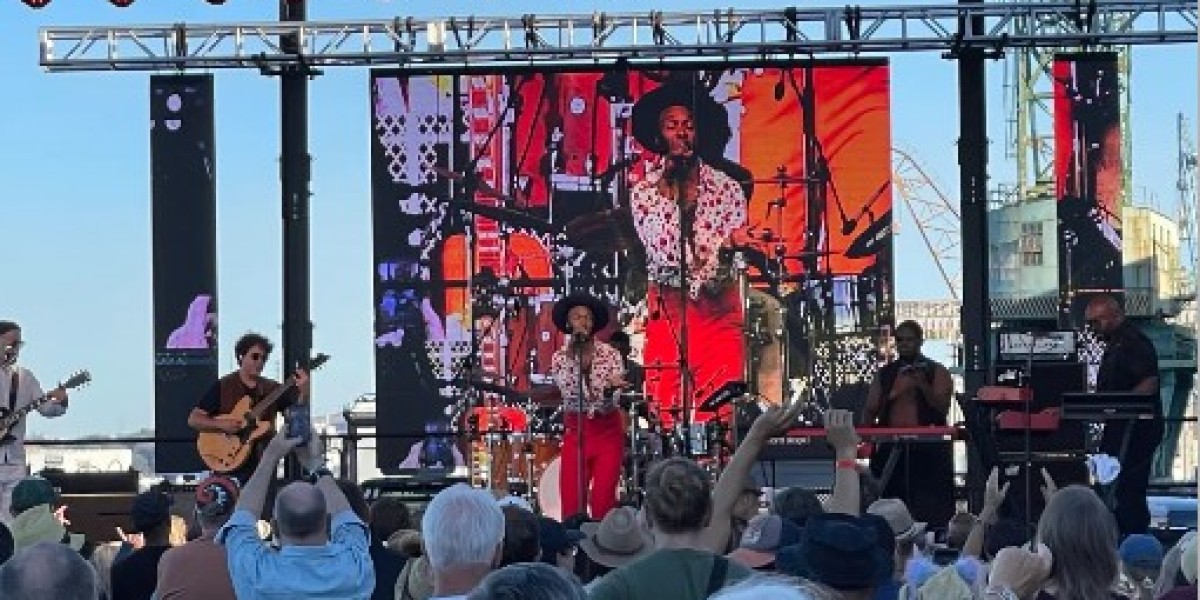In the realm of event planning, every detail matters. From the decor and seating arrangements to the choice of catering and entertainment, each element contributes to the overall experience. However, one often underestimated aspect that can make or break an event is the quality of its audio setup. Whether you're organizing a corporate conference, a wedding reception, or a live music performance, event audio plays a crucial role in creating a memorable and successful occasion.
Importance of Quality Event Audio
Imagine attending a conference where the keynote speaker's voice is barely audible, or a wedding where the vows are drowned out by static and echoes. Poor audio quality not only detracts from the audience's experience but can also hinder communication and diminish the impact of the event. On the other hand, clear, crisp audio enhances engagement, ensures participants can hear and understand every word, and helps maintain the overall energy and atmosphere of the occasion.
Components of a Successful Event Audio Setup
Achieving high-quality audio at an event requires careful planning and the right equipment. Here are some essential components to consider:
- Microphones: Depending on the size and nature of the event, different types of microphones may be needed. Handheld microphones are ideal for speakers who need to move around, while lapel microphones offer hands-free convenience for presenters. For musical performances, high-quality instrument and vocal microphones are essential to capture the nuances of live music.
- Mixing Consoles: A mixing console, or soundboard, allows audio engineers to adjust levels, balance sound, and apply effects in real-time. It's the nerve center of the audio setup and ensures that all audio sources are blended seamlessly for optimal clarity.
- Speakers and Amplifiers: The choice of speakers and amplifiers depends on the size of the venue and the expected audience. From compact speakers for small gatherings to line arrays for large events, the goal is to distribute sound evenly throughout the space without distortion or loss of fidelity.
- Acoustic Treatment: Consider the acoustics of the venue. Echoes, reverberations, and ambient noise can significantly affect audio quality. Using acoustic panels, curtains, or even strategically placed furniture can help minimize unwanted sound reflections and improve clarity.
- Backup Systems: Always have backup equipment on hand, including microphones, cables, and power sources. Murphy's Law ("anything that can go wrong, will go wrong") often applies to live events, so being prepared for technical mishaps can prevent disruptions.
Tailoring Audio Solutions to Different Types of Events
The audio requirements for events vary widely depending on their nature and purpose. Here's how audio solutions can be tailored to different types of events:
- Corporate Events: For conferences, seminars, and corporate meetings, clear and intelligible speech reinforcement is paramount. Wireless microphones and discreet audio setups can ensure that presenters and panelists are heard clearly without distracting from the content.
- Weddings and Social Events: Weddings, parties, and social gatherings require versatile audio setups that can accommodate speeches, background music, and announcements. DJs or live bands may require specialized equipment to deliver high-energy performances while maintaining audio fidelity.
- Live Performances: Concerts, theatrical productions, and other live performances demand robust audio systems capable of handling dynamic soundscapes. From front-of-house speakers to stage monitors, every aspect of the audio setup contributes to the audience's immersion in the performance.
The Role of Audio Professionals
While it's tempting to cut costs by handling audio setup internally, hiring professional audio engineers and technicians can make a world of difference. Experienced professionals have the expertise to assess venue acoustics, design custom audio solutions, and operate equipment effectively during the event. Their technical proficiency ensures that sound quality remains consistent from setup to teardown, allowing organizers and participants alike to focus on the event itself.
Integrating Technology for Seamless Experiences
Advancements in audio technology have revolutionized event production, offering innovative solutions to enhance attendee experiences. Some notable technological advancements include:
- Wireless Connectivity: Event Audio Wireless microphones and audio systems provide flexibility and mobility, allowing presenters and performers to move freely without being tethered to cables.
- Digital Signal Processing (DSP): DSP technology enables precise control over audio parameters such as equalization, compression, and delay, ensuring optimal sound quality in diverse environments.
- Remote Monitoring and Control: Remote monitoring tools allow audio engineers to monitor and adjust sound levels from a distance, ensuring consistent audio quality throughout the event.
Conclusion
In conclusion, event audio is a critical component that should not be overlooked in event planning. Investing in high-quality audio equipment and professional expertise can elevate your event, leaving a lasting impression on attendees and ensuring that your message or celebration is conveyed effectively. Whether you're hosting a corporate function, a social gathering, or a live performance, prioritizing clear, crisp audio will contribute significantly to the success and overall enjoyment of the event. Remember, when it comes to event audio, quality is key.






